Contre l'agrobusiness, quelle agriculture paysanne?
Intervention de Roxanne Mitralias à l'école anticapitaliste le 17/03/2013
Introduction : Pourquoi s’intéresser à l’agriculture et l’alimentation ?
 Parce-que tout simplement, sans cultiver la terre et sans manger, un autre monde n’est pas possible. N’oublions pas que dans les pays en crise, se nourrir redevient une priorité absolue.
Parce-que tout simplement, sans cultiver la terre et sans manger, un autre monde n’est pas possible. N’oublions pas que dans les pays en crise, se nourrir redevient une priorité absolue.
Parce-que cette thématique est à cheval entre travail et nature (on produit depuis la nature avec elle), elle se situe donc entre social et écologique, elle combine revendications immédiates et projet émancipateur (demander de plafonner les aides de la PAC, c’est privilégier les modes de production plus respectueux de l’environnement par exemple). C’est une bataille globale mais se décline aussi en expériences locales (paniers de légumes, coopératives alimentaires…). Enfin elle est sectorielle (puisque il s’agit d’un combat syndical dans la paysannerie) et en même temps concerne l’ensemble de la population quand il s’agit d’alimentation.


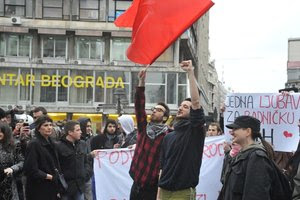 We, the undersigned, express our full support for the legitimate demands and justified outrage of citizens of Bosnia-Herzegovina. Their cry for a decent life, true democracy, solidarity that knows no borders—be them ethnic, national or religious, social equality and justice—resonates throughout the world. In a similar fashion to the citizens of Tahrir, Zuccotti Park, Taksim or Syntagma, the Bosnian protestors showed a courage to go beyond all institutional obstacles and all limitations that governments around the world impose on their citizens and reclaimed their streets and squares. The people of Bosnia-Herzegovina are standing against the system of exploitation, injustice and inequality that has been serving only and exclusively a tiny political, economic and financial elite.
We, the undersigned, express our full support for the legitimate demands and justified outrage of citizens of Bosnia-Herzegovina. Their cry for a decent life, true democracy, solidarity that knows no borders—be them ethnic, national or religious, social equality and justice—resonates throughout the world. In a similar fashion to the citizens of Tahrir, Zuccotti Park, Taksim or Syntagma, the Bosnian protestors showed a courage to go beyond all institutional obstacles and all limitations that governments around the world impose on their citizens and reclaimed their streets and squares. The people of Bosnia-Herzegovina are standing against the system of exploitation, injustice and inequality that has been serving only and exclusively a tiny political, economic and financial elite. Le printemps est en avance sur le froid qui règne. Nul ne sait jusqu'où ira l'explosion sociale et démocratique. Mais dores et déjà, on sait qu'elle laissera des traces profondes et pourrait faire tâche d'huile : les peuples de la région commencent à voir « ce qui fait système », tant dans les griefs que dans les aspirations exprimées. De la dénonciation des « privatisations criminelles » on pourrait voir émerger celle des institutions euro-atlantistes qui les ont encadrées.
Le printemps est en avance sur le froid qui règne. Nul ne sait jusqu'où ira l'explosion sociale et démocratique. Mais dores et déjà, on sait qu'elle laissera des traces profondes et pourrait faire tâche d'huile : les peuples de la région commencent à voir « ce qui fait système », tant dans les griefs que dans les aspirations exprimées. De la dénonciation des « privatisations criminelles » on pourrait voir émerger celle des institutions euro-atlantistes qui les ont encadrées. The most significant gain to date of the workers' uprising in Bosnia and Herzegovina is the foundation and daily activities of the Tuzla Plenum. It's natural that in the town where the uprising began, where from the very beginning the strength of the movements' working base was most clearly expressed – which had gathered around it the students, the unemployed and pensioners – would be the first to introduce into the life of the country a new political form in the service of the oppressed.
The most significant gain to date of the workers' uprising in Bosnia and Herzegovina is the foundation and daily activities of the Tuzla Plenum. It's natural that in the town where the uprising began, where from the very beginning the strength of the movements' working base was most clearly expressed – which had gathered around it the students, the unemployed and pensioners – would be the first to introduce into the life of the country a new political form in the service of the oppressed.
 Victory against Madrid’s hospital privatisation – and other recent struggles in Spain – shows popular resistance delivers results.
Victory against Madrid’s hospital privatisation – and other recent struggles in Spain – shows popular resistance delivers results.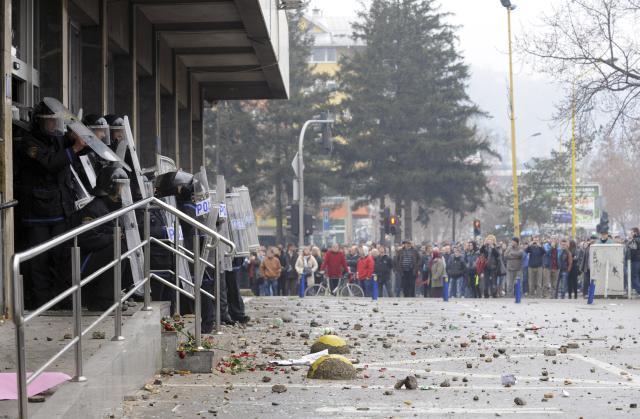 What started as a demonstration by unpaid workers in the north has expanded to more cities and other issues
What started as a demonstration by unpaid workers in the north has expanded to more cities and other issues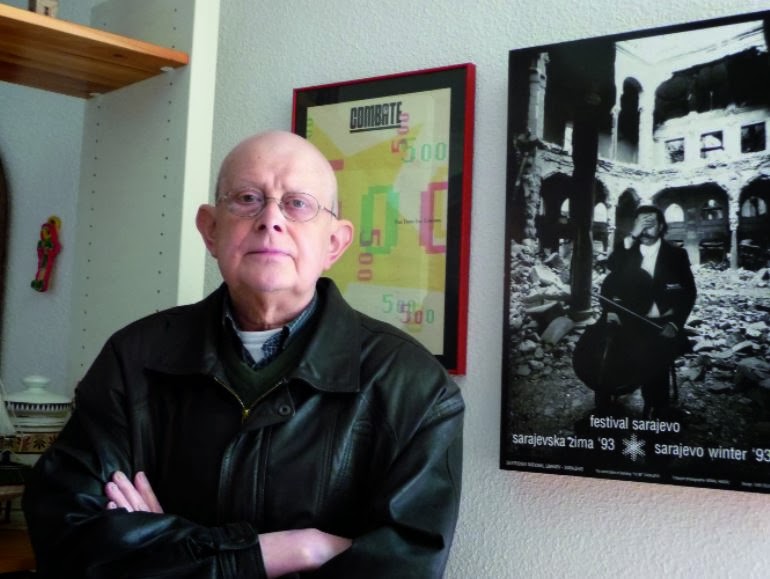 On January 26 in Madrid, cancer finally conquered the tenacious resistance of Miguel Romero Baeza (born Melilla, 1945). A journalist and revolutionary militant, who experienced and fought the Franco dictatorship and the capitalist system with the same passion, intelligence and dignity which with he faced his disease. He never lost the capacity of indignation faced with injustice, he was always on the side of those at the bottom, was immune to accommodation and at all times maintained analytical lucidity and decisiveness in action. As happened with so many others and other revolutionaries, his was first sensitivity towards other people’s suffering, then an ethical option (“with the poor people of this earth I want to share my fate ") and later, only later, came tactics and strategy, party and program. He lived exactly as he thought. Neither a drop of ambition, nor an ounce of profit. Decently. Austerely. Incorruptible.
On January 26 in Madrid, cancer finally conquered the tenacious resistance of Miguel Romero Baeza (born Melilla, 1945). A journalist and revolutionary militant, who experienced and fought the Franco dictatorship and the capitalist system with the same passion, intelligence and dignity which with he faced his disease. He never lost the capacity of indignation faced with injustice, he was always on the side of those at the bottom, was immune to accommodation and at all times maintained analytical lucidity and decisiveness in action. As happened with so many others and other revolutionaries, his was first sensitivity towards other people’s suffering, then an ethical option (“with the poor people of this earth I want to share my fate ") and later, only later, came tactics and strategy, party and program. He lived exactly as he thought. Neither a drop of ambition, nor an ounce of profit. Decently. Austerely. Incorruptible.  El cáncer pudo, finalmente,
El cáncer pudo, finalmente, 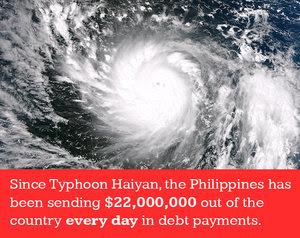 The enormous financial burden the Philippines labours under in servicing international debt while struggling to recover from Typhoon Haiyan and prepare for future emergencies must be lifted, said Christian Aid today.
The enormous financial burden the Philippines labours under in servicing international debt while struggling to recover from Typhoon Haiyan and prepare for future emergencies must be lifted, said Christian Aid today. María Lucia Fattorelli, coordinatrice nationale de l’organisation brésilienne Auditoria Cidadã da Dívida (Audit Citoyen de la dette), travaille depuis plusieurs années au côté d’une excellente équipe de femmes et d’hommes à la sensibilisation et à la conscientisation de la population brésilienne ainsi que des autorités administratives, judiciaires et des organismes de contrôle. Ils/elles sont parvenu-e-s à étendre leur rayon d’action à de nombreuses régions du pays, dans lesquelles des groupes d’audit citoyen avancent dans la recherche et l’analyse des budgets et des dettes de leur localité. L’organisation dispose maintenant à la fois d’un grand réseau national couvrant une ample zone géographique et d’un fort potentiel de participation citoyenne.
María Lucia Fattorelli, coordinatrice nationale de l’organisation brésilienne Auditoria Cidadã da Dívida (Audit Citoyen de la dette), travaille depuis plusieurs années au côté d’une excellente équipe de femmes et d’hommes à la sensibilisation et à la conscientisation de la population brésilienne ainsi que des autorités administratives, judiciaires et des organismes de contrôle. Ils/elles sont parvenu-e-s à étendre leur rayon d’action à de nombreuses régions du pays, dans lesquelles des groupes d’audit citoyen avancent dans la recherche et l’analyse des budgets et des dettes de leur localité. L’organisation dispose maintenant à la fois d’un grand réseau national couvrant une ample zone géographique et d’un fort potentiel de participation citoyenne.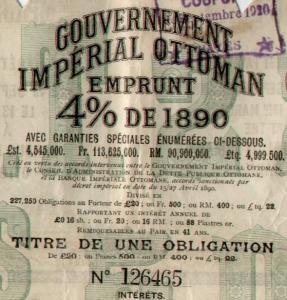 Au XIXe siècle, alors même qu’était réaffirmé le principe de souveraineté des États hérité de la paix de Westphalie, se déployaient de puissants dispositifs de dépendance liés à la dette. Comme d’autres États et Empires de la « semi-périphérie » (Empire russe, Égypte, Chine), l’Empire ottoman se trouva progressivement engagé dans une intense relation de subordination envers les « grandes puissances » de l’époque, France, Angleterre, (Allemagne, de manière secondaire). C’est l’usage de l’endettement public externe qui lia l’Empire au « centre » ; d’abord financière, la subordination fut rapidement étendue aux champs administratif et diplomatique.
Au XIXe siècle, alors même qu’était réaffirmé le principe de souveraineté des États hérité de la paix de Westphalie, se déployaient de puissants dispositifs de dépendance liés à la dette. Comme d’autres États et Empires de la « semi-périphérie » (Empire russe, Égypte, Chine), l’Empire ottoman se trouva progressivement engagé dans une intense relation de subordination envers les « grandes puissances » de l’époque, France, Angleterre, (Allemagne, de manière secondaire). C’est l’usage de l’endettement public externe qui lia l’Empire au « centre » ; d’abord financière, la subordination fut rapidement étendue aux champs administratif et diplomatique.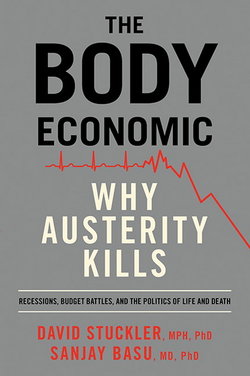 Reader’s notes: The Body Economic. Why Austerity Kills.
Reader’s notes: The Body Economic. Why Austerity Kills. 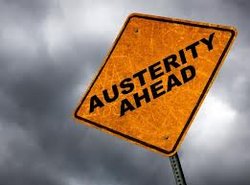 This paper
This paper  Brasil de Fato — It is time for the government to ally itself with the people or pay the price in the future. This is one of the evaluations of João Pedro Stedile, national coordinator of the Movement of Landless Rural Workers (MST) on the recent mobilisations across the country.
Brasil de Fato — It is time for the government to ally itself with the people or pay the price in the future. This is one of the evaluations of João Pedro Stedile, national coordinator of the Movement of Landless Rural Workers (MST) on the recent mobilisations across the country. Austerity is wreaking economic catastrophe on Europe,
Austerity is wreaking economic catastrophe on Europe, 
 The World Bank and the IMF have the power to impose economic policies on developing countries even when voters and elected politicians in those countries unanimously reject them [AFP]
The World Bank and the IMF have the power to impose economic policies on developing countries even when voters and elected politicians in those countries unanimously reject them [AFP]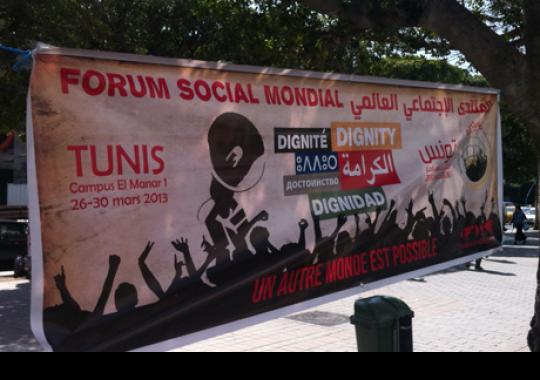
 Semences locales et biodiversité, agriculture biologique, permaculture et agroécologie, réseaux de producteurs-consommateurs, jardins urbains autogérés et cuisines collectives : les grecs s’approprient leur agriculture et leur alimentation !
Semences locales et biodiversité, agriculture biologique, permaculture et agroécologie, réseaux de producteurs-consommateurs, jardins urbains autogérés et cuisines collectives : les grecs s’approprient leur agriculture et leur alimentation !